Whiplash, My Father, and the Question I Can't Un-Ask
When Theme Cuts Deeper Than Any Horror Film
This close-up of Paul Reiser comes near the end of Damien Chazelle’s Whiplash (2014) — and it sends chills down my spine… Every. Single. Time.
It’s not a reaction to a murder — there’s no blood or guts, no monsters or demons or nightmarish apparitions… Just the face of a man realizing he’s lost his son.
Few films have left such a pervasive sense of dread in me as this movie about a kid who plays the drums. It’s one of the greatest-ever examples of how character and theme can intertwine — and even now, I struggle to explain why it sticks in my ribs the way it does… Maybe it’s my own perfectionism. Or my ambition. Or my self-esteem issues. Or the loss of my father…
Any psychologists reading?
I promise I’m going somewhere with this. But be warned: this piece sits somewhere between film analysis and personal unpacking. I’m not sure where exactly, but… in a way, that’s perfect for this article. Hopefully that’ll make sense later…
On Theme
Before we get too deep, let’s — very briefly — talk about theme, just so we’re on the same page.
People often describe stories as “exploring themes of ambition, or loss, or faith.” But those aren’t themes, those are just concepts. Big, abstract containers. Theme, at least the way I use it, isn’t just the category your story lives in. And it’s definitely not “the moral of the story.” This isn’t an after-school special. Great stories don’t preach — they poke.
Theme is a question.
It’s the idea your story wrestles with — the thing it wants the audience to feel, then think about, then argue about later over drinks. The story might suggest an answer, but it’s the asking that matters.
And for me, that’s what Whiplash does so brutally well.
The Movie
At its core, Whiplash (2014) is a psychological thriller about the cost of chasing — and demanding — greatness. It’s a story that asks if abuse can — or should — be tolerated in the pursuit of excellence, and if a nothing-else-matters obsession is what it takes to achieve transcendence.
Andrew (Miles Teller) is the drummer in question: young, ambitious, and gifted. He’s enrolled in a cutthroat music conservatory and dreams of becoming one of the greats. In this pursuit, he subjects himself to the verbal abuse (and flying music stands) of renowned instructor, Fletcher (J. K. Simmons, at full throttle), who believes the only way to extract greatness from a player is to break them.
It’s Student vs. Teacher on the surface, but underneath, it’s Andrew vs. Himself — as his hunger for validation eats away at his ties to love, family, and empathy.
That tension runs through every beat of Andrew and Fletcher’s relationship. Each rehearsal, every insult, every silence, or “not quite my tempo” is a test of how far someone’s willing to go to matter.
Should Andrew tolerate the abuse if it means achieving his dream? And is Fletcher pushing Andrew to greatness, or simply destroying him in the pursuit?
“There are no two words in the English language
more dangerous than ‘Good job.’”
High Achievers Think… Differently
In 1982, Alberto Salazar came in first at the Boston Marathon — and immediately collapsed. He hadn’t had a drink of water all day — it would’ve only slowed him down. At the finish line, he was running a body temperature of 107° F. Paramedics had to pump six liters of saline into his body and dunk him in an ice bath to keep him alive. He later claimed he thought he was legitimately dead.
But he did win the race… So…
“No Pain, No Gain” is a cliché for a reason. It articulates a simple truth that is unavoidable, inescapable, and tough to accept — we do not grow when we are comfortable.
Naturally, this applies to artists, who are always chasing better ways to express the thing inside them that’s begging to be seen. In whatever genre or form or medium, they’re compelled to try to put shape to something intangible — and few would call the process “comfy.”
Artists, maybe more than most, build a tolerance for emotional discomfort — sometimes to an extreme. Self-esteem issues, perfectionism, fear of rejection, fear of acceptance (!), impostor syndrome… Show me an artist, and I’ll show you a person who wrestles with some stuff.
It’s this mindset that primes artists — writers included, and drummers like Andrew — to accept worse and worse conditions in pursuit of “being great.” Given enough time, external abuse starts to feel just like the internal kind — and the difference becomes harder and harder to notice.
Stu-Burgers and Sixteenth Notes
The visitation after my father’s death had to be extended by four hours to accommodate everyone who wished to pay their respects. This is a strange source of pride for me, and a testament to his reach. He wasn’t a celebrity, but within certain circles, people knew the name Stu Milus.
Dad had at least two big claims to fame: he could make some incredible smash burgers (before they were trendy — people called them “Stu-burgers,” true story), and he was one of the best drummers in the region.
He wasn’t just a good rhythm-keeper, he was a creative player — not showy, but disciplined and technical and passionate. He could read sheet music at speed.
Point is, my dad took his craft seriously, and over time, became known for it.
But if you could ask him now, he’d tell you he was “okay” at best.
He’s no Dave Weckl. His triplets lagged a little, and don’t even get him started on the double-bass pedal in that closing number… All he could see were the missed beats and the off notes. He didn’t get it right. It wasn’t perfect.
There is no world in which Stu Milus thought he was “great,” and humble as he was, he wasn’t falsely modest. He wasn’t hedging his confidence — he simply didn’t live up to his own standard.
And I think he beat himself up over it.
The Cost of Greatness
When I sat down to write this, I was instinctively drawing comparisons between my dad and Andrew. Both drummers, both seeking greatness… but it occurs to me, he wasn’t just Andrew — he was his own Fletcher (not psychotic, just demanding and unforgiving of himself) — and in a way, he was also his own Paul Reiser.
See, Paul Reiser plays Andrew’s dad, Jim. Jim’s a nice guy. He loves Andrew. Wants good things for him. He wants warmth and safety and kindness for his son — happiness with that girl he was seeing. Success in whatever he’s up to.
But Jim’s also not “great.” He’ll never be “great.” He doesn’t have it in him to be “great.” He’s the guy who apologizes when someone else bumps into him — he’s soft-edged and unfocused and happy to be average… In other words, Jim represents everything Andrew doesn’t want to be.
To be clear, Stu Milus wasn’t the soft-edged man Jim is — but they shared something essential: a belief that love matters more than legacy. That our happiness was worth more than his ambition. And I don’t hold that against either of them. In fact, it’s probably why I’m writing this at all.
I think this wrinkles my brain so much because for most of my adult life, my relationship with my dad was not an especially close one. For as much as we loved each other, we had a difficult time expressing it (and it’s only with time that I’ve realized how much of that is due to our similarities). It’s been five and a half years since he passed, and I’m only just figuring out who he really was.
And this is — strangely — why I’m haunted by Whiplash.
Would my dad have been great if it weren’t for me?
Was being a good father what cost him satisfaction in his art? Is there some universal equation that dictates you must sacrifice one dream for another?
The Horror of Ambiguity
The themes within Whiplash are not fixed. How you feel about the ending entirely depends on your own personal relationship to success — how you define it, how it drives you, what you’re willing to give up for it…
Some viewers come away thinking, “Yay! Andrew did it!”
While some viewers will think, “Oh no. Andrew did it…”
If you think Fletcher’s a villain, you’re right. If you think he made Andrew better… you’re also right. That tension lives in us, not just on the screen.
And that’s the point.
Whiplash doesn’t tell you what to think. It forces you to decide for yourself — to sit in that discomfort — where you’re invited to explore some pretty meaty questions that have no right or wrong answer.
I have big questions for my dad that I have no way of asking. I don’t get to know what he really would have thought about so many things. I’m stuck with the gnawing discomfort of not knowing.
Maybe You Hate Paul Reiser, and That’s Okay
I started this by talking about Paul Reiser’s face — so that seems like an appropriate place to end. I said it was a look of horror, of realization, of loss.
But maybe I misread it.
Maybe it’s not just fear. Maybe it’s heartbreak. Maybe it’s awe. Maybe it’s all the things we feel when someone we love disappears into a version of themselves we no longer recognize — or worse, one we do. Or maybe, to you, it’s none of those things…
That’s the true horror of Whiplash. It doesn’t show you a monster. It shows you a mirror.
What do you think? What’s your take on the ending of Whiplash? Did Andrew win or lose? How do you define “success?” And who else wants a smash burger right now? (My dad would’ve said that’s the only kind of greatness that matters.)
Thanks for sticking around. I appreciate you reading this far.





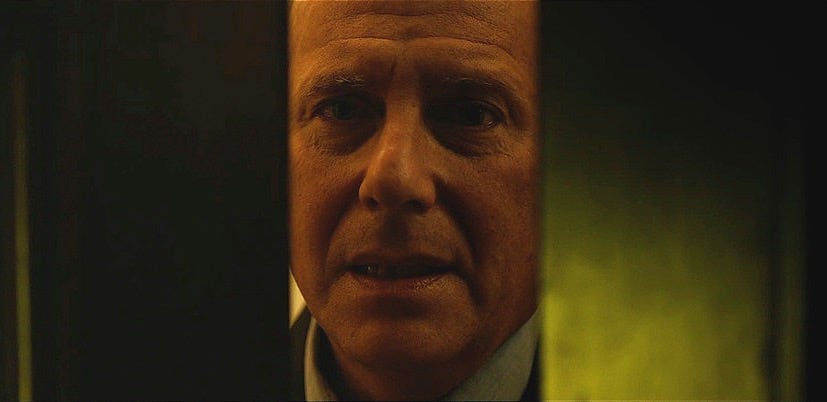
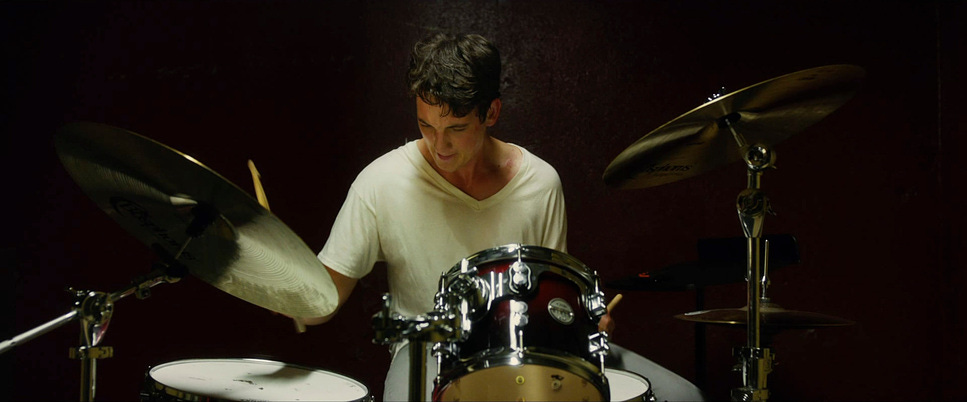

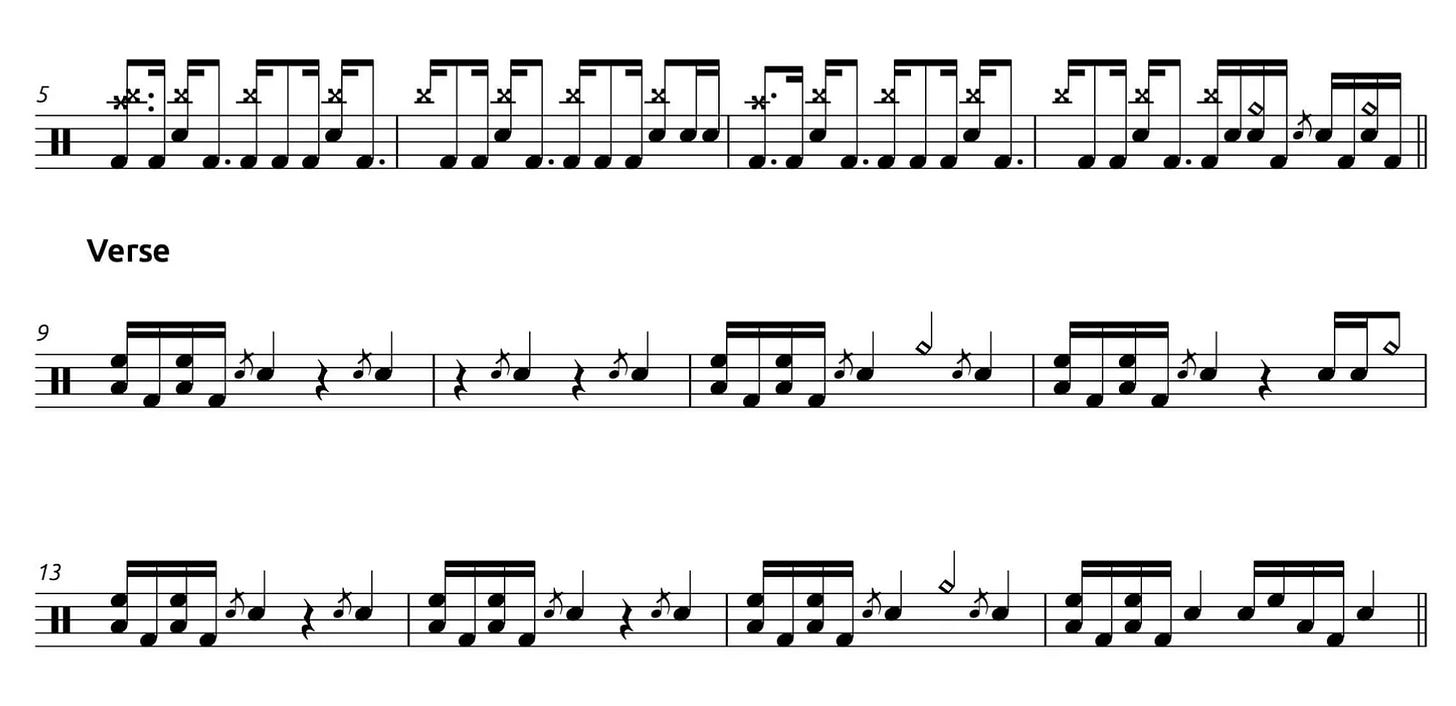
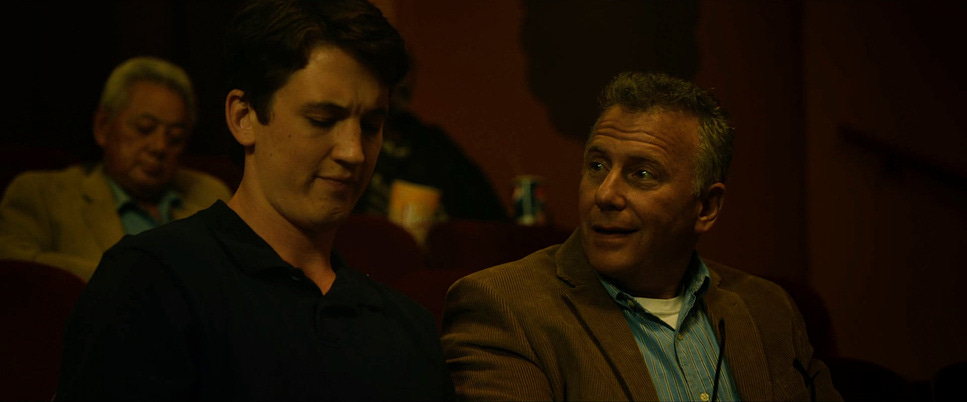
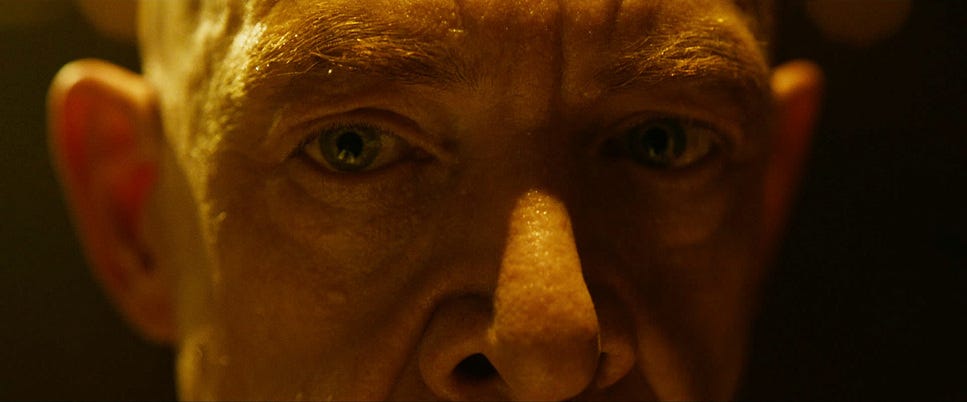
My first viewing of Whiplash left me with three definite feelings: endless antipathy for the obvious villain Fletcher, confusion over how the ending didn't seem to visit consequences on the characters for their "bad" choices, and high blood pressure. (My first viewings of films often seem to be simplistic and surface-level)
I'm still inclined to view Fletcher as the villain, regardless of Andrew's ambition. I'm still inclined to judge Andrew for casting aside his girlfriend so he can play the drums more. Something in me believes that, fundamentally, no amount of greatness is worth the sacrifice in relationships such greatness requires. To me, that last fraction of a percent of "betterness" is so inconsequential compared to the enrichment found in shared experience. But then that's coming from a guy who thought Andrew *always* was on tempo.
So this whole piece pokes (ha) at something that makes me uncomfortable. That maybe I'm not absolutely right, that maybe for some there is a *rightness* to the endless pursuit of perfection. And that, of course, was the point that I missed the first time around. The film is 100% a mirror.
Did dad ever see this movie? I feel like, despite him also being a perfectionist, he would have thrown the TV through the wall during one of Fletcher's abuse scenes.
Good post. The inclusion of your personal story about your father really elevates this beyond observations.
I love Whiplash. I always saw Fletcher as a devil-like char, not in an Al Pacino Devil’s Advocate way but a clear enough stand-in for those qualities. He’ll do anything to help make Andrew great, it’s only through his methods that Andrew can reach his goal… and while I don’t think Paul Reiser’s character is God, for me he’s a stand in for those we leave behind on the path to greatness- and that shot of him watching Andrew succeed (fall?) are those of us who were sacrificed. It’s painful for sure. That ending hits on all the notes. Great movie. I enjoyed your take on it here as well.